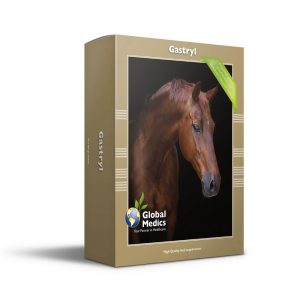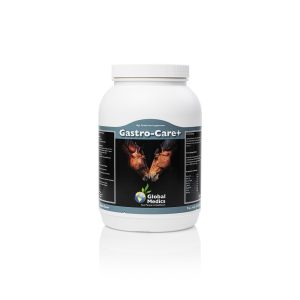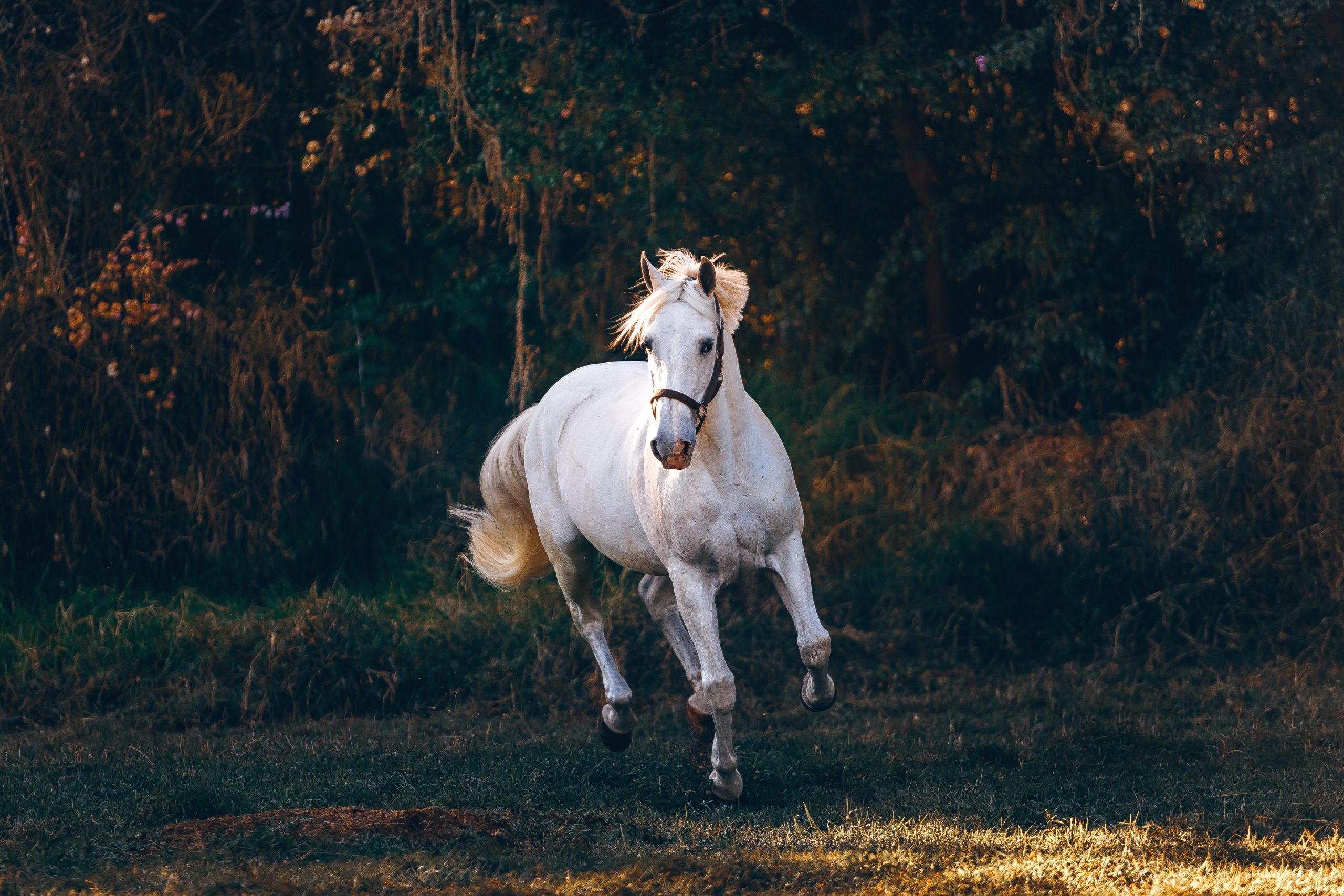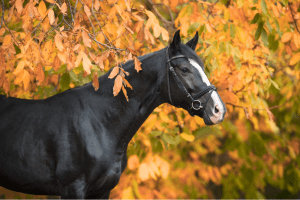Digestion in horses is a very sensitive process. Therefore, it is important to ensure adequate support on the one hand, and to make sure you recognize problems right away on the other. In this blog we discuss the complete digestive system of the horse and discover common complications in the digestive system.
How does a horse's digestive system work?
Horses are herbivores. That means they absorb only plant-based foods. Because in an ideal situation a horse eats several small portions during the day, its digestive system is fully adapted to this.
Below we discuss the different parts of the digestive system:
Oral cavity
A horse's digestion starts in the mouth. By chewing food, a horse produces saliva. This saliva already digests some of the food and allows it to pass easily down the esophagus. The higher the amount of fiber in the food, the more saliva a horse produces for digestion. This promotes the absorption of nutrients by the body.
Stomach
A horse absorbs small amounts of food during the day. Thus, there is a constant flow of food from the stomach to the intestines. As a result, stomach acid is constantly produced. The main job of this stomach acid is to eliminate bad bacteria and digest food into smaller particles.
Small intestine
The digestion of starches, proteins and fats takes place in the small intestine. These are large molecules that are split into smaller molecules by the absorption of water. If they are small enough, they are absorbed by the intestinal wall and the nutrients enter the body.
Blind and colon
In the large and blind intestines, fibers are digested by bacteria, fungi and microorganisms. These, in fact, live off the food the horse ingests. Their job is to convert plant cell walls into fatty acids that the horse can use as a source of energy.
Endgut
The final step of digestion takes place in the rectum. Here the dung balls are formed after which they are excreted on a regular basis.
How do you recognize digestive problems in a horse?
Problems in a horse's mouth
Is your horse suddenly losing his appetite or weight? Then be sure to check his mouth. This is because a horse's teeth continue to grow for life, which can sometimes cause discomfort. Irregular wear can cause sharp edges on the molars, also known as "hooks. This can lead to wounds on the tongue and sore cheeks, which in turn cause your horse to chew less well.
Other complications include incorrect jaw position or crooked teeth. Horses are then unable to grind their food adequately, making digestion difficult. So a visit to the dentist is definitely recommended if your horse has little to no appetite.
Problems with a horse's esophagus
The esophagus is responsible for transporting food from the mouth to the stomach. If your horse is a voracious eater or does not chew well enough, food can get stuck in the esophagus. This can cause a painful blockage and should be treated by a veterinarian.
General stomach problems in a horse
A horse constantly produces stomach acid, which is why it is important that your horse receives roughage at regular intervals. If a horse is deprived of forage for long periods of time, stomach acid attacks the stomach wall and can promote the development of gastric ulcers. An improper balance between roughage and concentrate can also cause stomach acid levels to become unbalanced.
You can recognize an ulcer by:
- Reacting negatively to the girth
- Frequent yawning
- A dull coat
- General change in behavior
Another common problem is stomach overfilling. This is seen, for example, when feeding slop that has not yet absorbed enough water or when feeding large amounts of concentrate. Also pay close attention to the condition of the pasture. If there is a lot of long grass here, it is best to keep an eye on your horse's nutritional intake.
Problems with a horse's intestines
A horse's intestinal flora is very sensitive. Therefore, it is important to avoid an imbalance by paying attention to the amount of sugar and starch in the concentrate feed. Too much sugar and starch can lead to colic, laminitis, diarrhea and irritation of the mucous membranes.
Colic in horses: a frequent complication in the digestive system
Colic is the term for abdominal pain and is a condition greatly feared by horse owners. There are different forms of colic. Examples include gas colic and constipation. The cause of colic is often due to improper feeding, worm infections, poorly maintained teeth and stress. There are some visible symptoms by which you can quickly recognize colic:
- No appetite
- Frequent rolling or lying down all the time
- Sweating and high body temperature
- Increased heart rate and breathing
- Scraping with the forelegs
- Kicking to the belly
Note that the symptoms of constipation can be the same as those of gas colic. Thus, how your horse behaves does not determine the type of colic your horse is experiencing.
What to do when your horse has colic?
Colic can be treated by a veterinarian in most cases. For example, with walking around, giving painkillers and Buscopan. Sometimes there is a severe form of colic that requires surgery. Do you suspect colic in your horse? Then it is important to act quickly as the consequences can be fatal.
Tips to avoid colic in horses:
Unfortunately, the onset of colic is often out of your control. Fortunately, there are a number of measures you can take to significantly reduce the risk of colic.
- Never just change feed, but do so gradually. This applies not only to concentrate feed, but also to hay and pasture grass
- Feed the right amount of nutrition tailored to your horse's performance. In addition, it is important to provide adequate exercise so that the intestines remain active
- Never forget to soak slobber sufficiently in water before giving it to your horse
- Support your horse's digestion with nutritional supplements
Supplements Gastro-Care+ and Gastryl
Stomach problems often occur because the stomach lining was damaged by excessively acidic stomach contents. Gastro-Care+ protects the stomach lining so that complications are less likely to occur. It neutralizes excess stomach acid and protects against irritation.
Gastryl is a new supplement specially developed to relieve stomach ulcers. Because it is administered through a tube directly into the mouth, the body quickly absorbs the active ingredients. Thus, excess stomach acid is efficiently neutralized.
A cure Gastryl can be followed up with Gastro-Care+

Gastryl

Gastro-Care+
Do you need more information?
Do you still have questions after reading this blog? If so, feel free to contact us. We are always ready to provide advice at Global Medics .




